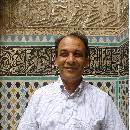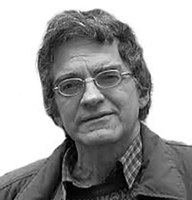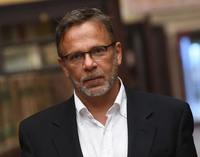
Prof. Ahmad Addous
Ahmad Addous is the President of the KAIS Scientific Committee and teaches Arabic Language and Literature at the Department of Interpreting and Translation of the University of Bologna (campus of Forlì). His research activities span from the poetic production of classical and contemporary Arab authors, to the theater as an educational tool for the learning of Arabic literary language and to the collections of Arabic manuscripts (Marsili fund) of the Bologna University Library (BUB). Between 2015 and 2021 he has been the Rector's Delegate for international relations (Arab Countries and Iran). He has bee a member of the Disciplines research unit in Oriental languages at Bologna University. Since 2017 he is the academic coordinator for an Erasmus Plus Exchange program with Jordan University, German-Jordanian University and Petra University (Jordan). He is involved in many research projects and author of many publications.

Prof. Carlo Saccone
Carlo Saccone has taught Islamic subjects at the universities of Trento (1994-2002) and of Padoa (1999-2015). His main field of interest is Persian literature, which he taught from 2002 to 2022 at the University of Bologna, dealing mainly with the relationship between medieval Persian poetry and Islamic mysticism, and producing monographs for a "thematic history of classical Persian literature". To his credit numerous translations of Persian classics and of Persian authors of the Persianate world. He published an introduction to the Qur'an in three volumes: I. Allah, il Dio del Terzo Testamento. Letture coraniche (Medusa 2005); II. Iblis, il Satana del Terzo Testamento. Santità e perdizione nell’Islam. Letture coraniche II, Centro Essad Bey – CreateSpace 2016); III. Adam, l’uomo nel Terzo Testamento. Letture coraniche III (WriteUp Books 2022). A further field of his scentific interests is the relationship between the Islamic tradition of the prophet Muhammad's journey to heaven and the Divine Comedy. In 2008 he founded with Alessandro Grossato (Facoltà Teologica del Triveneto) and Daniela Boccassini (University of British Columbia in Vancouver) the series "Quaderni di Studi Indo-Mediterranei" (of which he edited volumes 1, 4, 9 and 13) and in 2011 the parallel online publication "Rivista di Studi Indo-Mediterranei", freely accessible online. In the same year with Nahid Norozi (Università di Bologna) he founded and still directs "Quaderni di Meykhané", the only scentific journal in Italy dedicated exclusively to Iranian studies, freely accessible online.

Prof. Daniele Donati
Daniele Donati is associate professor of Administrative Law at the University of Bologna, where he teaches in several courses in the field of public law. In particular, teaches the course of Innovation and public administration (Transparency and Digital Administration), at the School of Specialization in Public Administration Studies (SPISA) where he is a member of the Selected Scientific Committee. Author of over 60 works including books, textbooks, essays in collective works and articles in scientific journals in several languages, prof. Donati has taken part in research projects and has been a speaker at numerous conferences and seminars in Italy and abroad (particularly in France, United Kingdom and United States). He is also -Distinguished International Fellow at the University of Virginia (USA) since 2010; Member of the editorial board of the Politische Italien-Forschung (PIFO) of the Justus Liebig University of Giessen (Germany) since January 2015; Member of the Editorial Staff of the online journal laCostituzione.info since November 2016; Investigador associat at the Center d'Estudis de Dret Ambiental de Tarragona since 2019; Member of the Scientific Committee of Quaderni di diritto of the Arti e dello Spettacolo since 2020; Member of the Scientific Committee of the journal Estudis de Govern Local since 2020. He chaired the Public Libraries Institution of the Municipality of Bologna from 2011 to 2021, and was a member of the administrative board of private foundations and public and private cultural institutions. He has been and is a consultant to the Italian government, state institutions and numerous regional and local authorities.